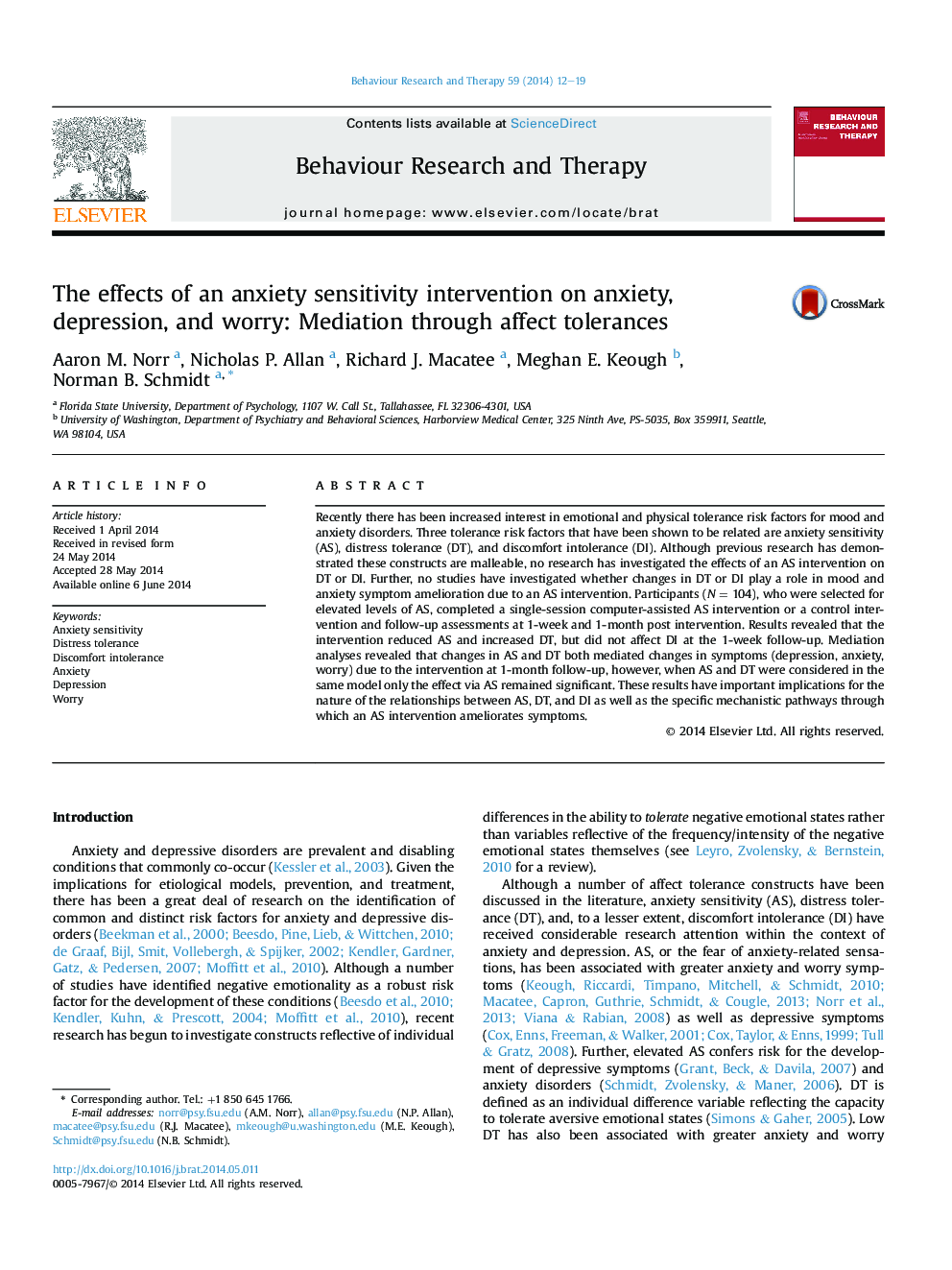| Article ID | Journal | Published Year | Pages | File Type |
|---|---|---|---|---|
| 7262638 | Behaviour Research and Therapy | 2014 | 8 Pages |
Abstract
Recently there has been increased interest in emotional and physical tolerance risk factors for mood and anxiety disorders. Three tolerance risk factors that have been shown to be related are anxiety sensitivity (AS), distress tolerance (DT), and discomfort intolerance (DI). Although previous research has demonstrated these constructs are malleable, no research has investigated the effects of an AS intervention on DT or DI. Further, no studies have investigated whether changes in DT or DI play a role in mood and anxiety symptom amelioration due to an AS intervention. Participants (NÂ =Â 104), who were selected for elevated levels of AS, completed a single-session computer-assisted AS intervention or a control intervention and follow-up assessments at 1-week and 1-month post intervention. Results revealed that the intervention reduced AS and increased DT, but did not affect DI at the 1-week follow-up. Mediation analyses revealed that changes in AS and DT both mediated changes in symptoms (depression, anxiety, worry) due to the intervention at 1-month follow-up, however, when AS and DT were considered in the same model only the effect via AS remained significant. These results have important implications for the nature of the relationships between AS, DT, and DI as well as the specific mechanistic pathways through which an AS intervention ameliorates symptoms.
Related Topics
Health Sciences
Medicine and Dentistry
Psychiatry and Mental Health
Authors
Aaron M. Norr, Nicholas P. Allan, Richard J. Macatee, Meghan E. Keough, Norman B. Schmidt,
